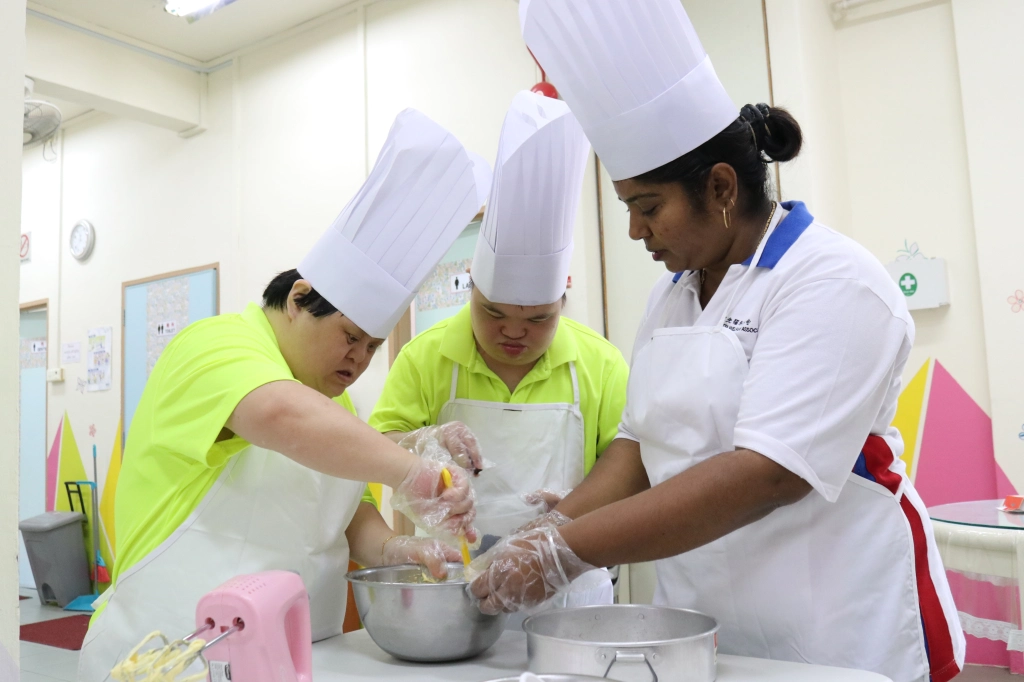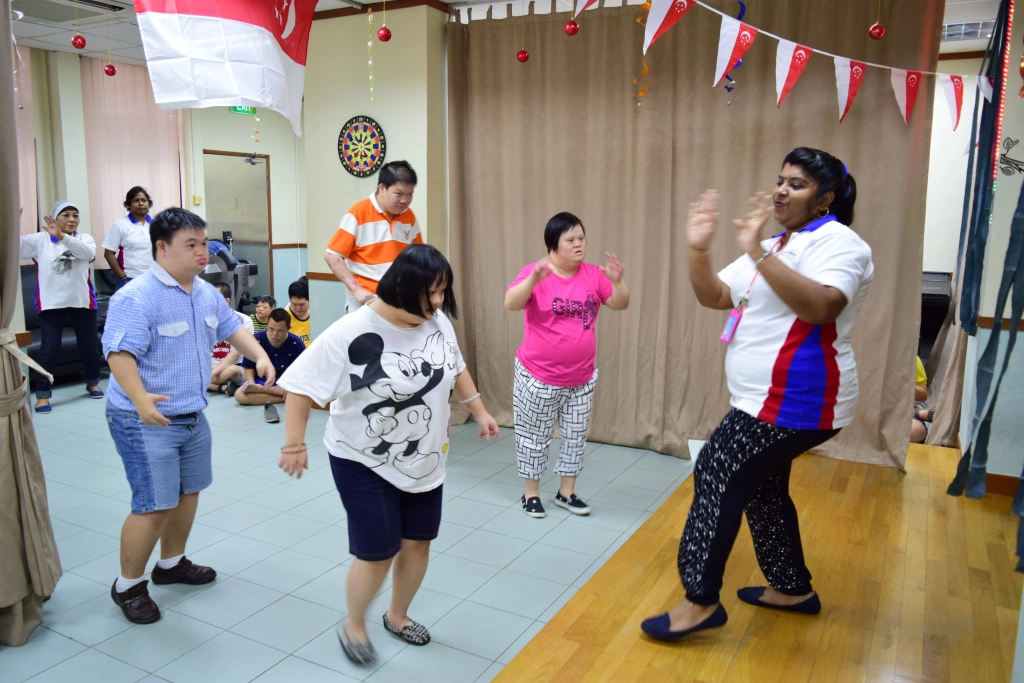
COVID-19 and the subsequent circuit-breaker has changed the way we live and work on a large-scale. However, for Ms Sujata d/o Arumugam, while she finds that some aspects have been different, her commitment and dedication remain the same. A Training Officer at Metta Day Activity Centre for the Intellectually Disabled (IDAC), nothing gives Sujata more joy than working with her clients, and she is looking forward to seeing them once more after the Centre reopens.
Q: What motivates you in your work?
A: It would be the loving gestures of our clients. They possess a willpower that can overcome all obstacles and restrictions, and the love they show me – hugs, a smile, it melts my heart.
For many of our clients, IDAC is their second home, and it fills me with a sense of satisfaction and gratitude when I see these actions. It lets me know that our clients feel safe and secure with us, and that they are comfortable enough to express affection. I am lucky to count such love as part of my daily routine!
Q: What are some challenges you’ve encountered in your work?
A: It isn’t easy when our client’s caregivers do not understand the work that we do. However, that’s okay. I try to continuously keep in touch with them to share more about our centre’s activities .
It is also distressing when I see our clients coming to the centre without proper grooming. Sometimes, clients will come in not having showered or brushed their teeth, while others occasionally come in without undergarments, or in soiled clothes. I do my best by messaging and calling their caregivers, providing updates on our clients and emphasizing the need for good personal hygiene practices.
On an organization level, we have gone the extra mile by helping our clients with their personal hygiene. This includes morning showers – it helps them feel fresh and clean throughout the day.
Some clients are more challenging to handle as more strength is needed to move and train them. However, with the support of my fellow Training Officers and colleagues, we get things done together at IDAC.

Q: As the clients have been unable to visit IDAC due to the circuit breaker, what has work been like for you?
A: During this circuit breaker, our work continues. I have been keeping busy, bringing work documents home. I have been using the time to craft out new Individual Care Plans (ICP) for our clients for the work year, which begins in April 2020, and lasts till March 2021. I have also been refining our Client Assessment Forms (CAF) for April 2020.
Beyond administrative work, we have also been calling caregivers every other day. We check that everything is going all right, and we give suggestions and tips on how caregivers can engage the clients with activities while at home. This includes keeping them active with simple chores and exercises.
Communicating with caregivers is essential. It is a difficult time for all, especially for caregivers of children or adults with special needs, as they find their routine disrupted. I have been providing emotional support and a listening ear as well.
IDAC staff will have their weekly e-meetings initiated by IDAC’s Centre Supervisor, Ms Kookila, once a week via Zoom to check on their wellbeing, progress and how they are getting along with the new work measures.
Q: How has the temporary closure of IDAC affect the clients?
A: This temporary closure, while necessary, has affected the training for our clients. We have goals that we set for our clients. For example, for one of our clients, we were teaching her how to sit on a chair safely. And so, with this goal in mind, we would practice with the client every day, providing step-by-step instructions and demonstrations.
However, with the closures of IDAC, our training process has been interrupted. It makes me worried as the caregiver has informed me that our client has reverted to rolling and laying on the floor. She also refuses to sit on the chair.
Physical, emotional, and outdoor training for our clients must be repeated once our activities can resume as some of our clients have regressed.
Q: What is a heart-warming memory that you still remember?
A: I had been on leave during my birthday. When I returned to the Centre, one of our clients was so excited to see me. She came and sat on my lap and couldn’t stop hugging me! It made me realize how much the clients loved me, and it made me feel really happy and appreciated.
Another time, I was working with a client with autism. He does not like to be touched, or to even be near anyone. However, he has recently started engaging with me by coming closer to me and tapping my hands if he needs anything. His behaviour shows that he is comfortable with my coaching, and his small steps of progress made me very happy to see his improvement.

